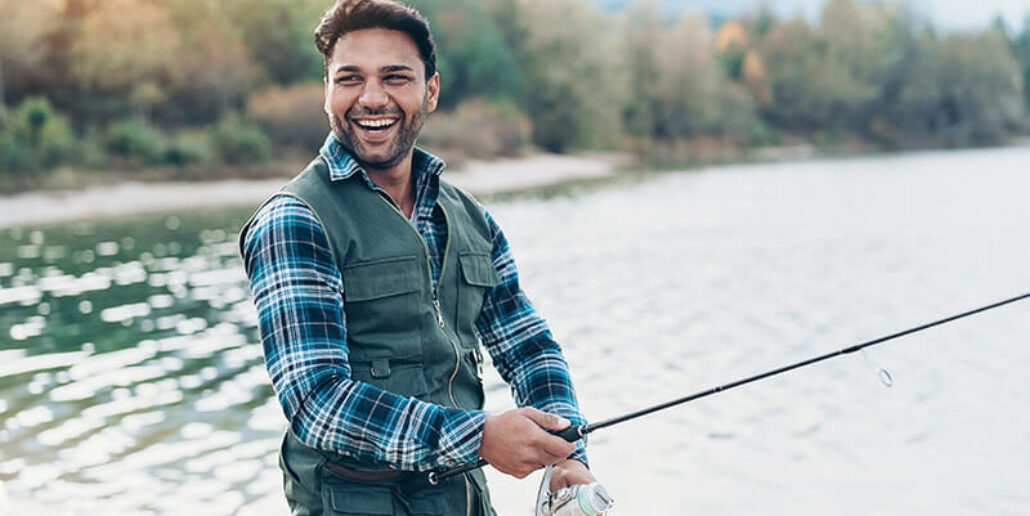Summit hand and upper extremity surgeon — and enthusiastic fly fisherman — J.P. Delaney, M.D., tells you what you need to know about fishing if you’re concerned about hand, wrist, or shoulder injury.
Fishing season is here! Across the Land of 10,000 Lakes, Minnesota fishing enthusiasts are eager to get out on the water. And there is more good news: compared to other outdoor activities, fishing has a low risk of injury to your hands, wrists, or shoulders. Read on for some fishing tips to protect your upper body.
“We don’t see a lot of fishing-related injuries from an orthopedic standpoint,” said J.P. Delaney, M.D., one of Summit’s hand and upper extremity surgeons. Dr. Delaney enjoys fly-fishing during the season.
Top fishing tip – Practice summertime safety
“The biggest safety threat while you’re fishing is likely to be from sunburn rather than from orthopedic strain,” Dr. Delaney said.
The sun can be surprisingly strong on the water, beating down from above and reflecting up from the water’s surface. Dr. Delany advises people fishing to wear protective clothing, including a wide-brimmed hat, to protect from sunburn and reduce skin cancer risk.
Getting a hook caught in the hand is a common fishing-related injury. It pays to keep your wits about you when you’re fishing, to avoid it.
Top fishing tip – brace yourself
If you’re fishing for a larger catch, it may take some strength to reel it in. Dr. Delaney recommends that people use their lower bodies to brace themselves, reducing strain on the shoulders, wrists, and back. Likewise, lift the pole using your lower body for leverage, rather than taking all of the strain with your arms.
Top fishing tip – Prevent reaggravating an old injury
For people who have had a previous injury to the hand, wrist, or shoulder — perhaps a bout of carpal tunnel syndrome, biceps tendinitis, wrist arthritis, or a rotator cuff injury — it pays to make sure that you’re taking care not to aggravate those old injuries. Some people may feel comfortable using a brace or split for extra support.
Top fishing tip – Reduce arm soreness
Dr. Delaney notes that, fortunately, repetitive motion injuries are not common in fishing. People using heavier weighted flies might have some soreness in the elbow or arm initially. That soreness generally goes away after the first couple of fishing expeditions.
To reduce arm soreness, make sure to stretch and change position when you can — without scaring the fish, that is.
In general, there is good news for people who like to fish but are concerned about their hands, wrists, or shoulders. Fishing has very little impact on the upper extremities and can be enjoyed for years to come. Just make sure to keep those hooks out of your thumb!
Summit Orthopedics provides personalized hand and wrist expertise
The function of our hands is integrated through our wrists and arms to our shoulders; a problem anywhere along our arm may have a significant impact on hand function and quality of life. Start your journey to better function and less pain. Find your hand expert, request an appointment online, or call us at (651) 968–5201 to schedule a consultation.
